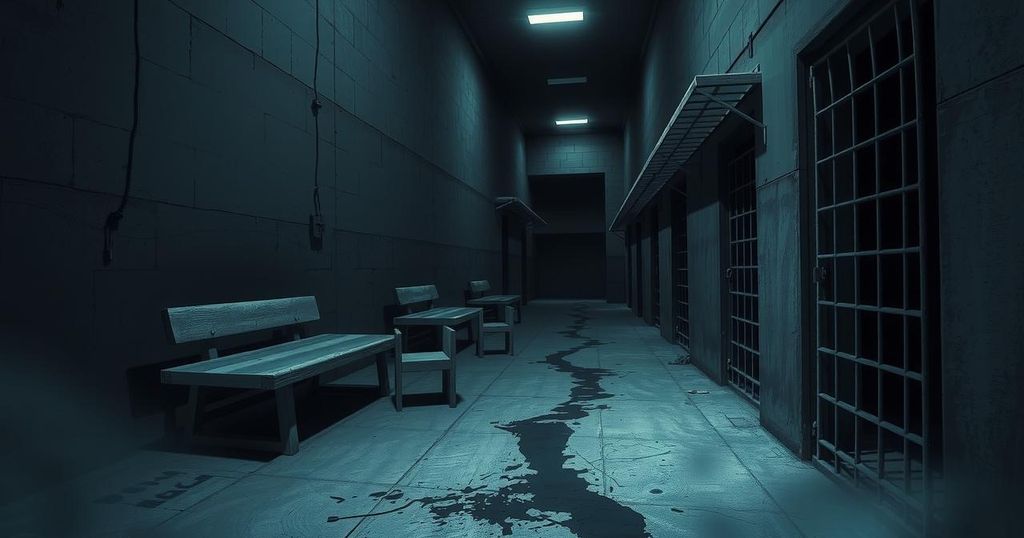World news
AE, ASIA, BUKELE, CUBA, DEMOCRACY, DIANA YATES, EL SALVADOR, HUMAN RIGHTS, JUDICIARY, LIFE SCIENCES, MARCO RUBIO, NATIONAL SECURITY, NAY, NEWS BUREAU, NORTH AMERICA, PEARL HARBOR, PHILIPPINES, POLITICS, SOUTH AMERICA, TREN DE ARAGUA, TRUMP, U. S, UNITED STATES, VENEZUELA
Elena Martinez
0 Comments
Deportation of Venezuelan Immigrants to El Salvador: An Overview
Over 200 Venezuelan immigrants were deported from the U.S. to El Salvador due to alleged gang ties, following President Trump’s invocation of the Alien Enemies Act. The offer from Salvadoran President Bukele to detain the immigrants in notorious prisons raises significant human rights concerns. Courts have intervened, and the treatment of deportees highlights ongoing issues in El Salvador’s penal system.
On March 15, over 200 Venezuelan immigrants were deported from the United States to El Salvador due to alleged gang affiliation. The U.S. administration characterized this action as a necessary measure against an influx of gang activity, specifically referencing the Tren de Aragua gang. President Trump invoked the Alien Enemies Act, an unprecedented move that allows for the detention and deportation of noncitizens without a Congressional war declaration.
The deportees were sent to El Salvador after President Nayib Bukele offered to house these individuals in his country’s notorious prisons. The Trump administration accepted this offer, investing $6 million to temporarily detain the Venezuelans. Following this decision, U.S. courts intervened, placing a temporary restraining order against the use of the Alien Enemies Act, a ruling that was later upheld by an appeals court.
Upon arrival, the deportees faced dire conditions, crammed into overcrowded cells devoid of essential comforts, such as mattresses or pillows. Reports described the denial of basic rights to food, sanitation, and medical care. Many deported individuals were arrested without justification, often only for possessing tattoos, which experts assert do not correlate with gang membership. Legal representatives contend these individuals are not gang members and possess no criminal records.
El Salvador has a troubling history regarding human rights, exacerbated by a civil war that resulted in significant loss of life and ongoing violence. Following periods of unrest, President Bukele declared states of emergency, leading to a sweeping crackdown on alleged gang affiliation. Over 85,000 people have been arrested without proper judicial procedures, resulting in a dramatic fall in the murder rate, albeit with a lack of transparency surrounding actual figures.
In terms of U.S.-El Salvador relations, the recent agreement signifies a potential shift. Bukele’s collaboration with Trump suggests a mutual alignment that could reshape diplomatic interactions, especially concerning immigration policies and law enforcement strategies. Although there is speculation about the fate of these deported immigrants, reports indicate they may receive harsh treatment within the Salvadoran penal system, marked by a lack of legal recourse and consular support due to severed diplomatic ties between Venezuela and El Salvador since 2019.
The recent deportation of Venezuelan immigrants to El Salvador underscores significant issues in U.S. immigration policy and highlights ongoing human rights concerns within Salvadoran prisons. The invocation of the Alien Enemies Act and the collaboration between the U.S. and El Salvador suggest a troubling approach to handling immigration and crime. The situation raises critical questions about the treatment of deportees and the broader implications for international relations between the involved nations.
Original Source: news.illinois.edu




Post Comment